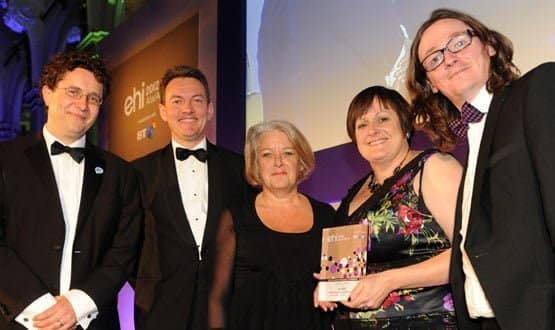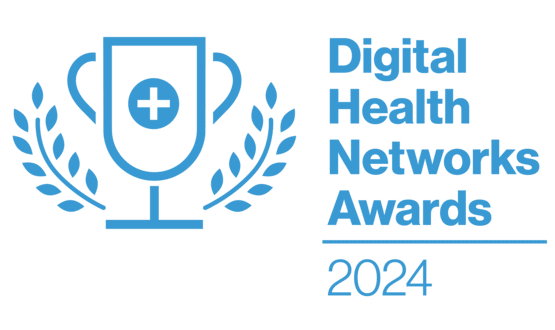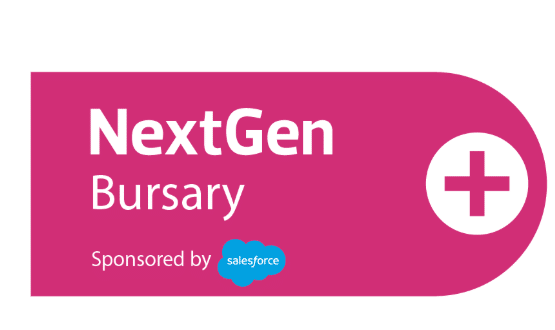Adding a bit of lippy
- 26 February 2013

Three years ago, when Dr Susan Hamer took up the role of national director for nursing, midwifery and allied health professionals at what was then NHS Connecting for Health and is now the Department of Health Informatics Directorate, one thing immediately struck her.
“Usually when you’re in an interesting area of nursing practice, it’s not hard to find enthusiasts who are keen to change practice,” she says. “But when I joined CfH, there was actually hardly anyone in the informatics space.”
It was a reality which Dr Hamer found concerning. “I had been in informatics ten or 15 years previously and it didn’t feel like the conversations had moved on.”
“My call at that time was that nursing was starting to hold the gig up for the rest of the informatics space, and that if we didn’t do something really quite ambitious it was never going to move.”
Information, not technology
Joining with Anne Cooper, the national clinical lead for nursing at the DHID, Dr Hamer set out to come up with that ambitious solution.
The result was the Leadership for Informed Practice (LIP) programme, a three-day course which aimed to engage senior nurses in the opportunities and challenges presented by information in healthcare.
Its content was developed following consultation with a range of individuals, including doctors, nurses and those in the informatics field.
“It was an interesting experience, getting all those stakeholders in the room who told us what they felt the challenges were and what content we should focus on,” Cooper recalls.
“In the end, we realised we needed to reel back a little bit and start focusing on some general principles that everybody c could start to think about and apply to their practice.”
The name ultimately given to the programme was a significant one. Its primary aim was not to make nurses more comfortable with technology per se. There was no focus on learning how to use spreadsheets, or how to code Access databases.
Instead, the idea was to help senior nurses lead in a world where information is becoming more prevalent and more important than ever. “It was a leadership programme, not an informatics programme,” emphasises Cooper.
“It had dawned on me that this wasn’t a technology challenge,” agrees Dr Hamer. “It was a leadership challenge. What we didn’t have was enough nurses in the system with a picture of what a technology-enabled world of practice would look like.
“This might sound a bit theoretical, but nursing’s a very oral discipline. It relies a lot on narrative; it relies a lot on stories. But if the story doesn’t change, the practice doesn’t change. There were not enough people out there with a different story about how technology could enhance practice.”
A shock to the system
A focus on the power of information rather than the power of technology was a different approach, and one which was greeted with pleasant surprise by those who took part in the course. Asked to sum up the general atmosphere on day one of session one, Cooper can’t help but laugh.
“It was shock, I think! Shock that it wasn’t what they thought it was going to be. I was asking somebody: ‘Well, what did you expect it to be about?’ and they’d expected it to be about IT.
“You know, we barely used the term IT. We used the word information because it isn’t just about the technology, it’s about what you’re using it for.”
“We had many paper examples,” adds Dr Hamer. “We tried to get over the idea that if you put discipline into your record keeping now, it will make it easier for you to share information. And should there be a time in the future where that record becomes electronic, it’s much easier to do that. We didn’t try to make technology the focus of it.”
Following on from the first session ran in October 2011, some 300 senior nurses went through the LIP. Two of them have gone on to take an active nursing informatics role.
One of them is Fiona Stephens of Medway Community Healthcare, who became the country’s first nurse chief clinical information officer – and there has been interest in replicating the LIP model in Wales, Scotland and Northern Ireland.
Asked whether she feels a tipping point has been reached with nursing informatics, Dr Hamer strikes a note of cautious optimism.
“I think I once read a book which said you need to get one in six to get a new behaviour embedded. So we thought, well, if we get 300 of our senior nurse leaders, that just might be enough. And I think it’s started to pay off. I do actually think it’s shifting,” she says.
“It’s better than it was, because otherwise we wouldn’t be talking to you. That’s also true with the media more broadly: it used to be very hard to get interest in any story around informatics in the popular nurse journals. But that has absolutely improved.”
The future for nursing practice
The formal LIP programme has now concluded and, with the reforms to the NHS, the future form of Department of Health-level informatics leadership remains unclear. But both Dr Hamer and Ms Cooper argue that the importance of this area is anything but.
“Every nurse who is working on a ward now will be doing something to do with informatics – they just don’t recognise it as such,” says Cooper. “So for me, the ambition is to mainstream informatics into nursing. If we continue to silo it into a specialty we’ll always have the problem.”
Dr Hamer, meanwhile, says nurses who refuse to engage in informatics will soon have no place in the profession.
“You always get the person in the room who says, oh, I’ve got Nurse Bloggs and she said that she’s never gone to look at her email. I just say, in which case Nurse Bloggs is not going to stay a nurse. Because that behaviour is incompatible with contemporary nursing practice.”

The EHI Awards 2013 are now open for entries. For full details of this year’s categories, judging process and how to submit your entry please visit the dedicated awards website.
This year’s black tie awards dinner will be held at the prestigious Roundhouse in north London on 10 October. For information about sponsorship opportunities contact head of events Neil Hadland. Tickets will also be on sale soon.




